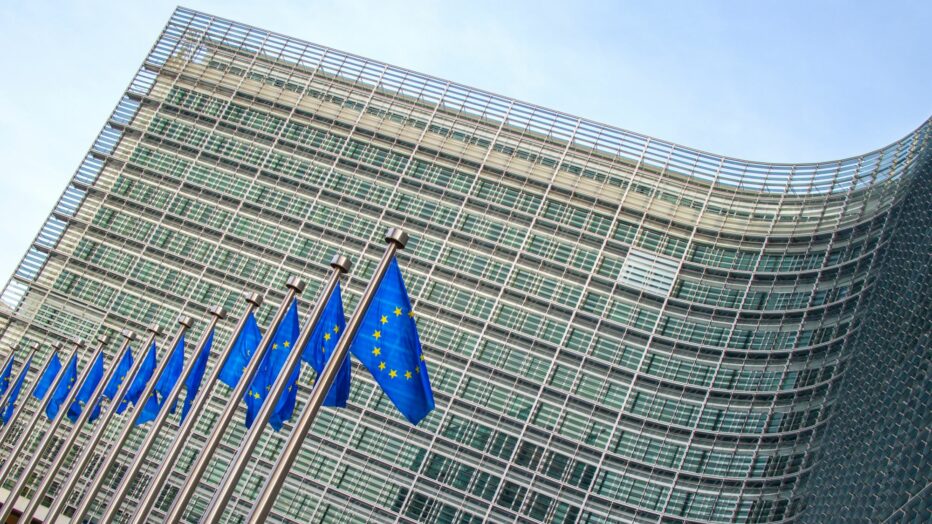YRITTÄJÄ, tule mukaan omiesi pariin! Liity Yrittäjiin.

European Commission package offers partial relief for struggling small businesses
The European Commission has published a package of measures intended to help small and medium-sized European businesses (SMEs).
In her annual State of the Union address, Commission President Ursula von der Leyen presented the SME Relief Package.
The Package offers SMEs relief through amendments to the regulation of commercial payments and payments between businesses and public agencies. The goal is to stop larger companies from misusing small businesses as lenders and to prevent SMEs from going bankrupt because of long payment terms.
For Suomen Yrittäjät, a crucial part of the Package is the establishment in each member state of an enforcement authority whom businesses can contact when the rules are broken.
Mira-Maria Danisman, Manager of the Suomen Yrittäjät Representation to the EU
The Commission proposes a maximum business-to-business payment term of 30 days. Businesses would not be allowed to agree with each other on longer payment terms. In each member state, an enforcement authority would be set up to ensure the rules are followed, launch investigations, issue sanctions, and process complaints.
“Strict payment term rules only mean something if they’re enforced. For Suomen Yrittäjät, a crucial part of the Package is the establishment in each member state of an enforcement authority whom businesses can contact when the rules are broken. Seeing this included in the Commission’s proposed Regulation is a great advocacy win,” Mira-Maria Danisman, Manager of the Suomen Yrittäjät Representation to the EU, says.
However, Danisman says that the proposal has room for improvement. Under the Commission’s proposed new Regulation, businesses must pay their invoices in 30 days, nor could businesses voluntarily agree otherwise.
“The Commission’s stance on this matter is too strict, as in certain cases longer payment terms, when jointly agreed, are in both parties’ interests. We’re going to seek flexibility in the subsequent preparation of the proposed Regulation, but with strict conditions to prevent abuses,” Danisman says.
Support for small business owners must be increased
The European Commission also wants to review the EU definition of an SME and offer its support to mid-cap companies with more than 250 employees. Even though Danisman agrees that support for mid-caps is important, she says that these companies should not be included in the planned support measures for SMEs.
“This would reduce the support for smaller businesses in Europe even further. Over 93% of all European companies are micro-enterprises employing fewer than 10 people. These companies’ challenges and needs are different to those of small mid-caps employing 250–499 people. The cake of support measures for small businesses should not be cut into even smaller pieces,” Danisman says.
In addition, Danisman calls on the Commission to create its own small business-owner strategy to ensure that micro-enterprises and single-person businesses get sufficient attention when the EU makes decisions and awards support.
Less tax bureaucracy
The EU’s SME Relief Package also includes a proposal for simplifying tax procedures. In future, SMEs would file one single tax return with the tax administration of their head office, which would then share this return with the other member states where the SME operates. The member state where the head office is located would also subsequently transfer any resulting tax revenues to the countries where the SME operates permanently.
“If implemented, the proposed system would ease the administrative tax burden on SMEs, which these businesses consider heavy. However, we must be realistic: tax proposals are complicated and famously endure long, stony paths in the EU legislature, so there’s no guarantee that the member states will approve the Commission’s proposal,” Danisman says.
Support for business transfers
The Commission also includes measures on transfers of businesses to new owners. Suomen Yrittäjät has requested the Commission to take additional measures at the EU level to promote business transfers. Now, the Commission intends to assess the state of business transfers in Europe in 2024.
“The owners of our businesses are ageing, and businesses need new owners all over Europe. Otherwise, we’ll lose jobs, tax revenue and consumer choice. The inclusion of business transfers in the relief package is an important acknowledgement of the work that we have done to promote business transfers,” Danisman says.
Are you a Suomen Yrittäjät member yet? Read more about member benefits and advantages!







